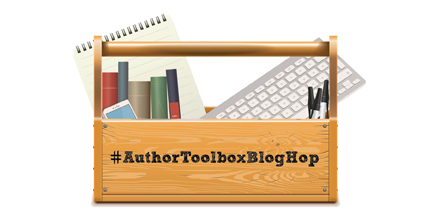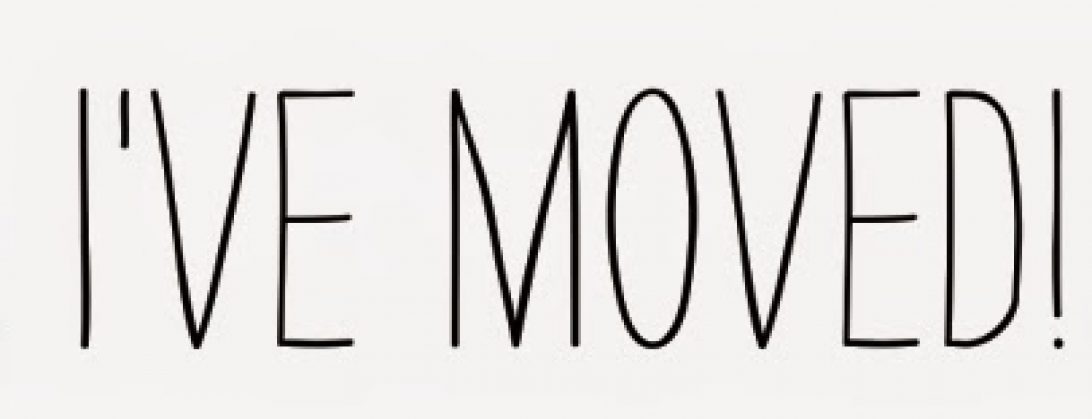I’ll be the first to admit it: autocorrect and I have a love/hate relationship. It LOVES to ‘correct’ my sh*t, and I absolutely HATE it. If you follow me on Twitter, you are probably well aware of this fact.
However, that does not mean all editing is bad. In fact, solid editing is probably one of the most important aspects of publishing your work. Unfortunately, the process can be long and (after what feels like the 700th time through your manuscript,) tedious. But, regardless of how arduous the process is, you should never, EVER discredit the edit.
Which is a lesson I learned the very hard way.
As some of you probably know, my debut novel, Alice: The Wanderland Chronicles released last month! It was such an incredible experience and something I will never ever forget. But with all the absolutely incredible things that happened that day there was also this one little tiny thing…
That turned into an absolute and total disaster.
I have a feeling you know where this is going, but let me tell you my story.
It’s May 16th. Launch Day. The day I have been waiting MONTHS for. I wake up and make my cup of coffee, then log in to my computer ready to start the day chatting with friends on social media, recording interviews, and promoting the heck out of Alice. Before that though, I hop on GoodReads to check and see if any of my advanced readers have left any new feedback. Lo and behold, there is a brand new review in, so like any eager author, I hurriedly click the link to read it, and my heart drops.
This review, has brought up something that none of my other readers or reviewers have mentioned before: The quote I included at the beginning of the book–part of the Jabberwocky poem in Alice duology–had been credited to C.S. Lewis, not Lewis Carroll.
. . .what.
So as I’m reading this, in my mind I’m thinking ‘No… no, there’s no way. She must have gotten a different edition, or she read it wrong or SOMETHING, because there’s no way I would have done that.‘ Of course, the sinking feeling in my gut as I continued reading completely negated all the denial my brain so considerately manufactured. Regardless, now I have to check for myself. I rush to grab my copy of Alice to check and see,
AND SHE WAS RIGHT.
Somehow instead of typing Lewis Carroll at the end of the quote, I had written C.S. Lewis. Such a small mistake and yet SO BIG at the same time. My story is an ALICE IN WONDERLAND retelling and I had quoted the wrong author.
Naturally, I was upset. Lots of feels in a very short amount of time, namely: frustration, concern, horror, shock, sadness, guilt, rage, and a heaping helping of embarrassment. HOW could this have happened? I know who wrote Alice in Wonderland! Do you know how many times I’ve read, thought, typed, and said the name Lewis Carroll in the past year???? More times than I can even begin to count. So, what the hell?
Well, my friends. What it comes down to is this: EDITING.
Now let me just say, I edited Alice SO MANY times. I did my own revisions, I had critique partners then MORE of my own revisions, and then when I was picked up by my publisher I was assigned a PHENOMENAL editor who helped make Alice so much better than I could have ever thought possible. I edited.
A LOT.
SO MUCH EDITING.
But what it comes down to is, even with all of the time and effort and consideration that went into editing, there was still an error. So what happened?
Well, it’s been a month since the release and I’ve had some time to process, and I think I have an answer. During my edits most of my attention was on the main body of the story. I mean, that’s what’s important right? Turns out, yes and no. Obviously, your story needs to be clean. And I’m pleased to report that the body of the story has not had any issues because it was given so much attention. But here’s the thing: if it’s in your book, SOMEONE is going to read it. EVERYTHING needs to be checked. COMPLETELY.
This is where I went wrong. With the section of the poem I quoted, I only used a very small piece of text. I typed it and I read it over to make sure it was in correctly. When I typed in the name, I’m sure I had a brain fart and typed C.S. Lewis instead (really, an easy mistake to make: similar names, both writers, both British, I mean come on). Then when I was editing, I checked through the poem, and read too quickly. I didn’t pay the proper amount of attention to it, and it bit me in the ass. Plain and simple.
Now, this story has a happy ending. My publisher is ABSOLUTELY phenomenal, and when I called her and told her about the mess, she was on it and making changes to get the book fixed.* Honestly I am AMAZED at how quickly she was able to fix it. We also decided to take our mistake and twist it into a positive and turned it into a launch party game. If you go search #CSLewisCarroll on Twitter, you’ll see all the tweets yourself. So what could have been an unmitigated disaster turned into, comparatively, a minor snafu.
But I don’t ever want to do that again. I’ve learned my lesson. Diligence in editing should NEVER be compromised. Coincidentally, I am currently editing my next book, a Sci-Fi retell of Peter Pan, and I’m taking some tips I’ve picked up to help make sure my manuscript is clean. So far, they seem to be working. I’m sure I’ll have more to fix, but let me tell you, it won’t be anything like writing the wrong author’s name! So here is my takeaway and what I want to share with you. 5 Tricks that are helping me become a more mindful editor.
JM Sullivan’s Crash Course (literally) in Editing
- Change the font/size of the text in your document. As you go through your checks, try switching up the text. You’ll be amazed at what changing the ‘look’ of the type does to help your eyes catch small errors.
- Read the section you are editing out loud as you go. Listening to the words as they are spoken will help you catch pacing errors and awkward wording.
- SLOW THE HELL DOWN. Take your time. Don’t rush the process. If you notice yourself skimming edits, take a break. It’s better to give yourself a rest and come back fresh than to spend the time rushing through sections and thinking you are finished, when really all you’ve done is miss mistakes.
- Check through the ENTIRE document. If it’s a part of your book, edit it. Dedications, acknowledgements, prologues, prefaces, WHATEVER. Mistakes can pop up anywhere– don’t get lulled into the idea that just because it’s a smaller piece of text reviewing it is any less important.
- Embrace your imperfections. Writing is the time to be brazenly confident and creative. Editing needs to be meticulous and very self-critical. I’m not saying you need to berate yourself, but as you’re editing, be very mindful (and accepting) of the fact that you make mistakes. It will help you to be a more conscientious and critical editor.
***
So there you have it. My horror story, how we turned our gigantic lemon into a quirky flavored lemonade, and what I’ve learned from the process. Now if you’ll excuse me, I need to go reformat and re-read this post before I hit the publish button. 😉
Happy Writing!
***
*Fun Fact: If you pre-ordered a copy of Alice, hold onto it! It’s one of a very few that have the quote error–which makes it a collector’s edition 😉
——————————————————————————————————————————

J.M. Sullivan is a Science Teacher by day, and an author by night. If you would like to connect for a healthy dose of sparkle, positivity, and a touch of crazy, you can find her on Twitter or Instagram @_JM_Sullivan or on her YouTube Channel, AuthorConfession.
————————————————————————————————————

Thanks for stopping by my AuthorToolboxBlogHop entry today! If you want to learn more from other great authors, and meet the AMAZING creator of this event, check out the original post HERE


Wow! I’m glad you were able to turn things around.
Sometimes editing feels like that scene from Doctor Strange where he’s in the time-loop getting killed over-and-over again, so it’s not odd that things slip through. Changing font type and even tweaking the indents and spacing tricks the brain into thinking it’s something entirely new – and that’s when awful word choices and typos jump out at me.
Great post 🙂
LikeLiked by 1 person
I’m currently on my oral read-through, almost done! I’m so sorry about the “snafu,” but it happens to the best of us. I was talking to my mother yesterday about errors in the books of big-time authors, and says she sees it all the time as well. And she ONLY reads the big-time authors. Congrats on turning it around, and on your release! The Wanderland Chronicles sounds great!
LikeLiked by 1 person
Thank you for bringing up editing this month. A fellow writer friend of mine suggested Grammarly. It’s a really great app. If you use a mac though, its not quite to friendly. But it does catch everything. I have to read mine aloud and listen to it since my brain tends to reverse things like characters and words. I use Vbookz PDF reader and it helps me so much.
LikeLiked by 1 person
Oh wow! You have no idea how much this article eased my mind. I feel like I can breathe now…I relate with this on a lot of levels. Hahaha! Thank you so much for writing this. I went through something similar with my first published novel, and part of me felt like it was just me (even though I knew it wasn’t). Anyways, glad I’m not alone. You’re right! Sometimes, no matter how hard you try, someone’s bound to question something, but we can never let that make us afraid of keeping at it.
Cheers to you, Twitter/Wordpress/Instagram pal! 😁😁😁❤❤❤
LikeLiked by 1 person
Awww I’m glad! Yeah we’re only human, we’re bound to make mistakes just gotta do our best to catch them! 😉
LikeLiked by 1 person
You said it! Cheers 😊🖒🌟❤
LikeLike
I love this post! It’s gut wrenching to find that typo. What amazed me as an author is how much it bothered me when I found an error. I guess we all take pride in our work, so it hurts when we get it wrong. I have the computer read the book out loud to me. This makes me slow down, and I hear the mistakes instead of trying to see them. It’s takes a long time to get through a novel, but it’s worth it.
LikeLiked by 2 people
I use text to speech too. It’s great for catching missing words that my eyes have ignored ten times, and also makes repetition glaring.
LikeLiked by 2 people
Typo’s happen. The nice thing about the digital age is they can be corrected!
LikeLiked by 1 person
Congrats on the launch! And for dealing with a pooh situation into a party! 🙂 We are only human and mistakes happen. I’m constantly rereading my stories and spotting things I would change. I hate anything I wrote years ago because I would write them so differently now, but that’s another post. 🙂
LikeLike
I love how you managed to turn typing the wrong name into a launch party game 🙂
Great editing tips! I read aloud all the time, and it really does help! Taking a break is good advice too. When you’ve re-read the same paragraph 5 times, it’s time to stop!
LikeLike
I love how you managed to turn an error into a game, that’s real brightside stuff 😊 your editing tips are so good as well, I missed several tiny misspellings in my third and final read through of my MS, every beta reader picked up at least one! But that’s what they’re there for, catching the mistakes I miss!
LikeLiked by 1 person
Aaw, now I feel badly – I wasn’t even thinking about critical reading, because that’s not what I was doing, but I definitely saw the quote and didn’t catch it either. SORRY! 😧😧
I definitely do the read-it-out-loud thing and find it really helpful, especially for catching missing words or tense mixups. I’ve never tried the font change, but I can see how it could be really useful – I’ll try it next time!
LikeLiked by 1 person
Don’t feel bad! SO many people missed it! That’s what was crazy!! It was just a complete fluke! Funny now, not so much on launch day LOL!
LikeLiked by 1 person
I hate dumb typos and factual errors in books. I hate it even more when I make the mistake – even in something like a blog comment (Automistake and me have a hate/hate relationship. Whatever I type, automistake changes for me). I can feel your pain.
I LOVE the fact you turned the typo into a “thing”. I think that’s the best approach. Own up, apologise, correct, and move on. And do your best to make sure it doesn’t happen again.
Great editing tips!
LikeLiked by 1 person
Some great tips here. I wouldn’t have thought something as simple as changing the font could have such a benefit during editing. Thank you
LikeLiked by 1 person
Isn’t it amazing the little things that get past us? I can’t tell you how many times I’ve edited something only to find loads of errors and problems when I share it with someone. I’m glad you made lemonade with your lemons!
LikeLiked by 1 person
Ow! Sorry about the error, but kudos for turning it in your favor.
Editing is a necessary evil. My anal brain loves it. My writing brain chomps at the bit to work on the sparkly, new book.
Two things I’ve found to be helpful (besides the different font/size) is to change the background to a glaring red. The brain is slowed even further. And read end to beginning, which stops the brain from skipping over familiar phrases.
Good luck on your Peter Pan space odyssey. It sounds like a winner!
LikeLiked by 2 people
I’ve heard the read in reverse order thing too. It seem to work really well because your brain can’t get caught up in the story
LikeLiked by 1 person
Hi! I never thought to change the font! Great idea 🙂
Leslie
LikeLiked by 1 person
That’s awful about the error! Thankfully you managed to turn it around 🙂
LikeLiked by 1 person
Whew! I’m glad things turned out well in the end. And good thing your very creative editor could help make the turn-around so upbeat. The idea to change the font as you go along editing is a great idea, I’ll try it. Thanks for sharing the story, an eye-opener, that 🙂
LikeLiked by 1 person
I had a similar experience with my debut novel, even though a team of editors and beta readers helped polish it. What made it even worse is My tendency to rant when I invest in an independently published book then find it is poorly edited. I understand professional editors can cost a lot, but the expense is so worth it! Especially since I don’t finish poorly edited books and am not likely to invest in the author again.
LikeLiked by 1 person
Typos happen and I am the queen of them. Thankfully your typo was taken care of so quickly. I am a firm believer of multiple read throughs and multiple sets of eyes.
LikeLiked by 1 person
Hi!
You might have been nominated already – but I nominated you for the Liebster Award! 🙂
You can click here for the details: https://hodawrites.wordpress.com/2017/07/14/liebster-nomination/
LikeLike
I think it’s awesome the way you were able to turn it around into a twitter game! I can so see something like that happening to me when my launch day comes. Mistakes happen and we can and should do everything in our power to prevent them, but when they do happen it’s good to be able to handle it without falling apart.
LikeLiked by 1 person
Hahaha. It was definitely an experience! Hopefully you don’t have to deal with this, I’m sure your debut is going to be AMAZING!
LikeLiked by 1 person
So far it’s been going pretty well. I’m enjoying learning the curve. 😁
LikeLike
I obsess over errors, so afraid that I’ll make one in the manuscript I’m sending out. Make sure you do slow down as you say, when reading aloud and that you read only the words that are actually ON the page. Taking breaks is a wise thing.
This is my first time here. I’ll connect with you online and follow your blog.
Victoria Marie Lees
http://victoriamarielees.blogspot.com
LikeLiked by 1 person
Welcome!!! 😀 It definitely can be stressful, but it sounds like you’ve got a solid game plan to keep you in the clear! 😉
LikeLike
Excellent post! I love your anecdote, and I’m glad you were able to fix it. I haven’t typed out the quote that will precede my novel, yet, but I will definitely take your precautions under extreme advisement.
I’m currently in the revising stage of my novel (second pass), and it’s tough watching those mistakes pop up. At least we feel better when we’ve caught them and fixed them, though!
LikeLiked by 1 person